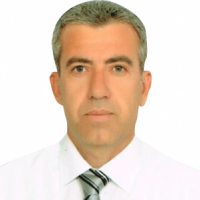-
The Syrian Opposition Is Worse Than the Syrian Regime

Ten years have passed since the outbreak of the Syrian civil war in 2011 and there are still only two options in Syria, bad and worse. The Syrian regime represents the bad option and the Syrian opposition represents the worse option. Or at best, Assad regime and the Syrian opposition are two sides of the same coin. Syrian Regime
History and the present are replete with examples that demonstrate that most oppositions in the world are almost a replica of ruling systems or ruling parties. For sure, this golden rule has exceptions, yet, Syria is not one of them. On the contrary, the only exception in this context is that the Syrian opposition has surpassed the Syrian regime in adopting degenerate political discourse. Moreover, despicable policies on the ground in the areas it controls with the help of the Turkish occupier.
Most prominent figures in the Syrian opposition are either former supporters of Assad regime or belong to political Islam, more precisely, to the Muslim Brotherhood in Syria. In other words, the Syrian regime and its opponents have the same values and culture. Therefore, throughout the Syrian crisis, the opposition has adopted similar policies and agendas to Assad regime, if not worse.
Since the first bullet was fired in the Syrian internal strife in 2011, the Syrian armed opposition has deliberately pushed populated areas into the circle of armed conflict with the merciless Assad regime. The armed factions, that intentionally implicated residential areas in the bloody conflict, were aware of the brutal response by Assad regime. However, they did not care about the lives and livelihood of civilians and did not respect international conventions in this regard. Their goal was to bring in Western military intervention to topple Assad regime and to seize power.
After the Syrian political and armed opposition became certain that the West would not intervene, then they invited Turkey to invade and occupy many areas in north and north east Syria. They called the areas occupied by Turkey as liberated areas! Like Assad regime, pro-Turkish factions liquidated opponents. They carried out demographic changes in the occupied city of Afrin when they expelled its original inhabitants of Kurds and settled Arabs and Turkmen instead.
They changed the names of the cities and towns they occupied, especially the Kurdish one, and then applied the policies of Arabization and Turkification. They raised the Turkish flag and pictures of their Sultan, Erdogan, in the occupied territories. Turkish language has become the official language in schools. Turkish lira is the main currency in commercial and financial dealings in all occupied territories. Turkish government appointed Turkish governors to these areas. So, practically, all these occupied areas have become a part of Turkey.
The Syrian opposition, especially “National Coalition for Syrian Revolutionary and Opposition Forces” supported by Ankara, adopted an extremist sectarian and nationalist rhetoric. They have always insisted on imparting the Arab and Islamic character to Syria according to their project, which posed a flagrant threat to the other non-Arab components.
Hundreds of extremist armed factions affiliated with the Syrian opposition have emerged, including the Islamic State and Al-Nusra Front (al-Qaeda branch). Hundreds of battles were fought by these radical groups against each other for influence. Thousands of its members have turned into mercenaries on demand under the supervision of Turkish intelligence and to serve Turkey’s agendas and interests. Then they were sent to Libya, Azerbaijan, Venezuela, and other places.
The Syrian opposition is divided into many platforms. Istanbul platform, Moscow platform, Cairo platform, and the ‘patriotic’ opposition platform at home according to the classification of Assad regime. Each platform represents the agendas of its sponsoring state.
The above is some of what was provided by the Syrian political and armed opposition, especially those affiliated with Turkey. Unfortunately, after ten years of crisis, hundreds of thousands of deaths and millions of people displaced, Syrians have only two options. The bad choice represented by Assad regime and the worst choice represented by the Islamic opposition that implements Turkish and Qatari agendas in Syria. Syrian Regime
Jwan Dibo levant

You May Also Like
Popular Posts
Caricature
BENEFIT Sponsors BuildHer...
- April 23, 2025
BENEFIT, the Kingdom’s innovator and leading company in Fintech and electronic financial transactions service, has sponsored the BuildHer CityHack 2025 Hackathon, a two-day event spearheaded by the College of Engineering and Technology at the Royal University for Women (RUW).
Aimed at secondary school students, the event brought together a distinguished group of academic professionals and technology experts to mentor and inspire young participants.
More than 100 high school students from across the Kingdom of Bahrain took part in the hackathon, which featured an intensive programme of training workshops and hands-on sessions. These activities were tailored to enhance participants’ critical thinking, collaborative problem-solving, and team-building capabilities, while also encouraging the development of practical and sustainable solutions to contemporary challenges using modern technological tools.
BENEFIT’s Chief Executive Mr. Abdulwahed AlJanahi, commented: “Our support for this educational hackathon reflects our long-term strategic vision to nurture the talents of emerging national youth and empower the next generation of accomplished female leaders in technology. By fostering creativity and innovation, we aim to contribute meaningfully to Bahrain’s comprehensive development goals and align with the aspirations outlined in the Kingdom’s Vision 2030—an ambition in which BENEFIT plays a central role.”
Professor Riyadh Yousif Hamzah, President of the Royal University for Women, commented: “This initiative reflects our commitment to advancing women in STEM fields. We're cultivating a generation of creative, solution-driven female leaders who will drive national development. Our partnership with BENEFIT exemplifies the powerful synergy between academia and private sector in supporting educational innovation.”
Hanan Abdulla Hasan, Senior Manager, PR & Communication at BENEFIT, said: “We are honoured to collaborate with RUW in supporting this remarkable technology-focused event. It highlights our commitment to social responsibility, and our ongoing efforts to enhance the digital and innovation capabilities of young Bahraini women and foster their ability to harness technological tools in the service of a smarter, more sustainable future.”
For his part, Dr. Humam ElAgha, Acting Dean of the College of Engineering and Technology at the University, said: “BuildHer CityHack 2025 embodies our hands-on approach to education. By tackling real-world problems through creative thinking and sustainable solutions, we're preparing women to thrive in the knowledge economy – a cornerstone of the University's vision.”
opinion
Report
ads
Newsletter
Subscribe to our mailing list to get the new updates!






















